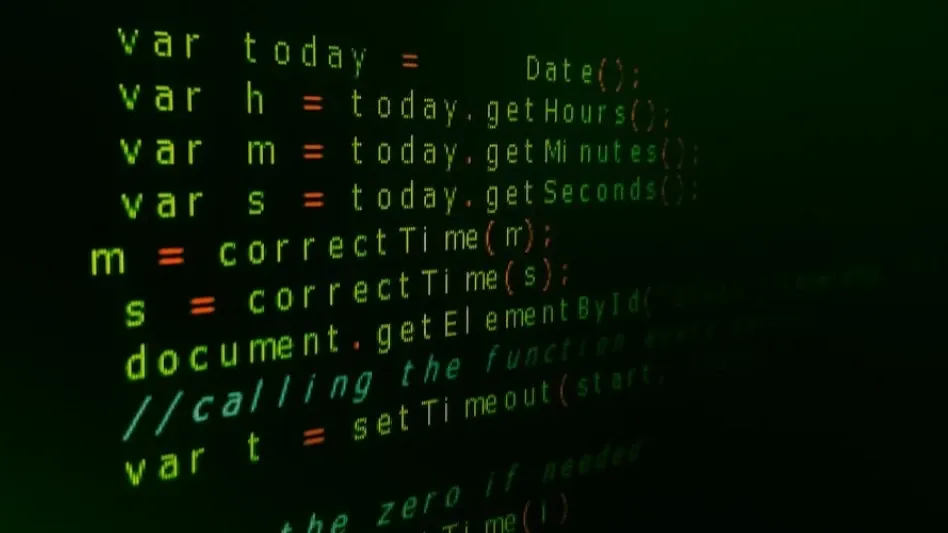The Biden administration has announced significant updates to existing cybersecurity regulations to combat the increasing problem of healthcare data breaches. The primary focus of these changes is the Health Insurance Portability and Accountability Act (HIPAA) of 1996. The necessity for these updates stems from an alarming rise in healthcare data breaches, with over 167 million Americans affected in 2023 alone. Anne Neuberger, Deputy National Security Adviser for Cyber and Emerging Technology, highlighted that the updates are designed to bolster electronic health information security and introduce new, clearer cybersecurity requirements. These changes underscore the urgent need to modernize outdated legislation to address the growing threat posed by cyberattacks in the healthcare sector.
These updates are critical as the original HIPAA regulations were established long before the current prevalence of ransomware and the digitization of health records. The enhancements will require companies to encrypt patient data, ensuring that if hacked, sensitive information cannot be leaked on the web. This aims to protect individuals from blackmail and other privacy infringements. The updates are timely, given that UnitedHealth, a major health insurance provider, has reported potential losses in the hundreds of millions due to cyberattacks. The need for these updates reflects the evolving nature of cyber threats and the importance of safeguarding healthcare data from malicious actors.
The Urgency of Cybersecurity Updates
The broader context of these updates is underscored by the World Economic Forum’s 2023 Global Risks Report, which places widespread cybercrime among the top global risks. The dynamic technology environment makes more people vulnerable to cybercrimes, with ransomware posing a particular threat to healthcare providers. This report highlights the critical need for stringent measures to protect healthcare data, which is increasingly targeted by cybercriminals. Ransomware attacks have the potential to disrupt healthcare services, compromise patient safety, and cause significant financial losses. The Biden administration’s proactive approach aims to mitigate these risks and ensure that healthcare providers are better equipped to defend against cyber threats.
In another related issue, the Salt Typhoon cyber attack, attributed to Chinese involvement, infiltrated US communications companies and compromised consumer security. The administration is calling for critical infrastructure updates and stronger basic cybersecurity practices in response. Voluntary company commitments have proven inadequate, and bipartisan support from the Federal Communications Commission (FCC) is being sought to enforce compliance. This approach mirrors successful regulations seen in the UK and Australia, which have led to quicker detection and containment of such breaches. The urgency of these updates is further emphasized by the increasing sophistication of cyberattacks and the interconnected nature of modern technology.
Enhancing Protections and Ensuring Compliance
Overall, these cybersecurity updates reflect a consensus that more stringent and updated measures are necessary to protect healthcare data and critical communication infrastructures. This comprehensive plan aims to address the vulnerabilities exposed by recent cyberattacks, ensuring faster response and minimizing the impact of such incidents in the future. The administration’s proactive stance emphasizes the significance of cybersecurity in safeguarding sensitive information and maintaining public trust. The introduction of clearer cybersecurity requirements will help healthcare providers better understand their obligations and implement effective security measures.
The enhancements to HIPAA regulations also include provisions for ongoing monitoring and assessment of cybersecurity practices. This continuous evaluation will identify emerging threats and ensure that security measures remain effective over time. The updates are expected to foster a culture of vigilance and accountability within the healthcare industry, encouraging organizations to prioritize cybersecurity alongside patient care. By enforcing compliance through regulatory oversight, the administration aims to create a robust defense against cyber threats and protect the integrity of healthcare systems. The success of these initiatives will depend on the collaboration between government agencies, healthcare providers, and technology experts to develop and implement resilient security strategies.
The Future of Healthcare Cybersecurity
The Biden administration has introduced major updates to existing cybersecurity regulations to address the increasing problem of healthcare data breaches. These changes primarily focus on the Health Insurance Portability and Accountability Act (HIPAA) of 1996. Triggered by a dramatic rise in healthcare data breaches, with over 167 million Americans impacted in 2023 alone, the updates aim to strengthen electronic health information security. Anne Neuberger, Deputy National Security Adviser for Cyber and Emerging Technology, stated that the updates include clearer cybersecurity requirements, emphasizing the urgent need to modernize old legislation to combat the growing threat of cyberattacks in the healthcare sector.
These updates are crucial because the original HIPAA regulations were developed before the widespread use of ransomware and the digitization of health records. The enhancements mandate that companies encrypt patient data, ensuring that even if hacked, sensitive information cannot be easily leaked online. This protects individuals from blackmail and privacy violations. The updates are especially timely since UnitedHealth, a major health insurance provider, has reported potential losses reaching hundreds of millions due to cyberattacks. These updates underscore the evolving cyber threats and the necessity of protecting healthcare data from malicious entities.









